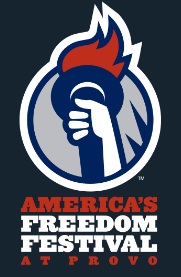Dear Mr. President:
You are acutely aware that the history of liberty is a history of civil disobedience to unjust laws or practices. As Edmund Burke sermonized, “All that is necessary for the triumph of evil is that good men do nothing.”
Civil disobedience is not the first, but the last option. Henry David Thoreau wrote with profound restraint in Civil Disobedience: “If the injustice is part of the necessary friction of the machine of government, let it go, let it go: perchance it will wear smooth certainly the machine will wear out. If the injustice has a spring, or a pulley, or a rope, or a crank, exclusively for itself, then perhaps you may consider whether the remedy will not be worse than the evil; but if it is of such a nature that it requires you to be the agent of injustice to another, then, I say, break the law. Let your life be a counter friction to stop the machine.”
Thoreau’s moral philosophy found expression during the Nuremburg trials in which “following orders” was rejected as a defense. Indeed, military law requires disobedience to clearly illegal orders.
A dark chapter in America’s World War II history would not have been written if the then United States Attorney General had resigned rather than participate in racist concentration camps imprisoning 120,000 Japanese American citizens and resident aliens.
Civil disobedience to the Fugitive Slave Act and Jim Crow laws provoked the end of slavery and the modern civil rights revolution.
We submit that Edward J. Snowden’s disclosures of dragnet surveillance of Americans under § 215 of the Patriot Act, § 702 of the Foreign Intelligence Surveillance Act Amendments, or otherwise were sanctioned by Thoreau’s time-honored moral philosophy and justifications for civil disobedience. Since 2005, Mr. Snowden had been employed by the intelligence community. He found himself complicit in secret, indiscriminate spying on millions of innocent citizens contrary to the spirit if not the letter of the First and Fourth Amendments and the transparency indispensable to self-government. Members of Congress entrusted with oversight remained silent or Delphic. Mr. Snowden confronted a choice between civic duty and passivity. He may have recalled the injunction of Martin Luther King, Jr.: “He who passively accepts evil is as much involved in it as he who helps to perpetrate it.” Mr. Snowden chose duty. Your administration vindictively responded with a criminal complaint alleging violations of the Espionage Act.
From the commencement of your administration, your secrecy of the National Security Agency’s Orwellian surveillance programs had frustrated a national conversation over their legality, necessity, or morality. That secrecy (combined with congressional nonfeasance) provoked Edward’s disclosures, which sparked a national conversation which you have belatedly and cynically embraced. Legislation has been introduced in both the House of Representatives and Senate to curtail or terminate the NSA’s programs, and the American people are being educated to the public policy choices at hand. A commanding majority now voice concerns over the dragnet surveillance of Americans that Edward exposed and you concealed. It seems mystifying to us that you are prosecuting Edward for accomplishing what you have said urgently needed to be done!
The right to be left alone from government snooping–the most cherished right among civilized people—is the cornerstone of liberty. Supreme Court Justice Robert Jackson served as Chief Prosecutor at Nuremburg. He came to learn of the dynamics of the Third Reich that crushed a free society, and which have lessons for the United States today.









